Everything for your career – sustainably

You want to know how? Then the next 5 minutes will enlighten you.
If you are still wondering what sustainable lab work should be – then read our first post What should our future look like?
Your advance beyond the environment
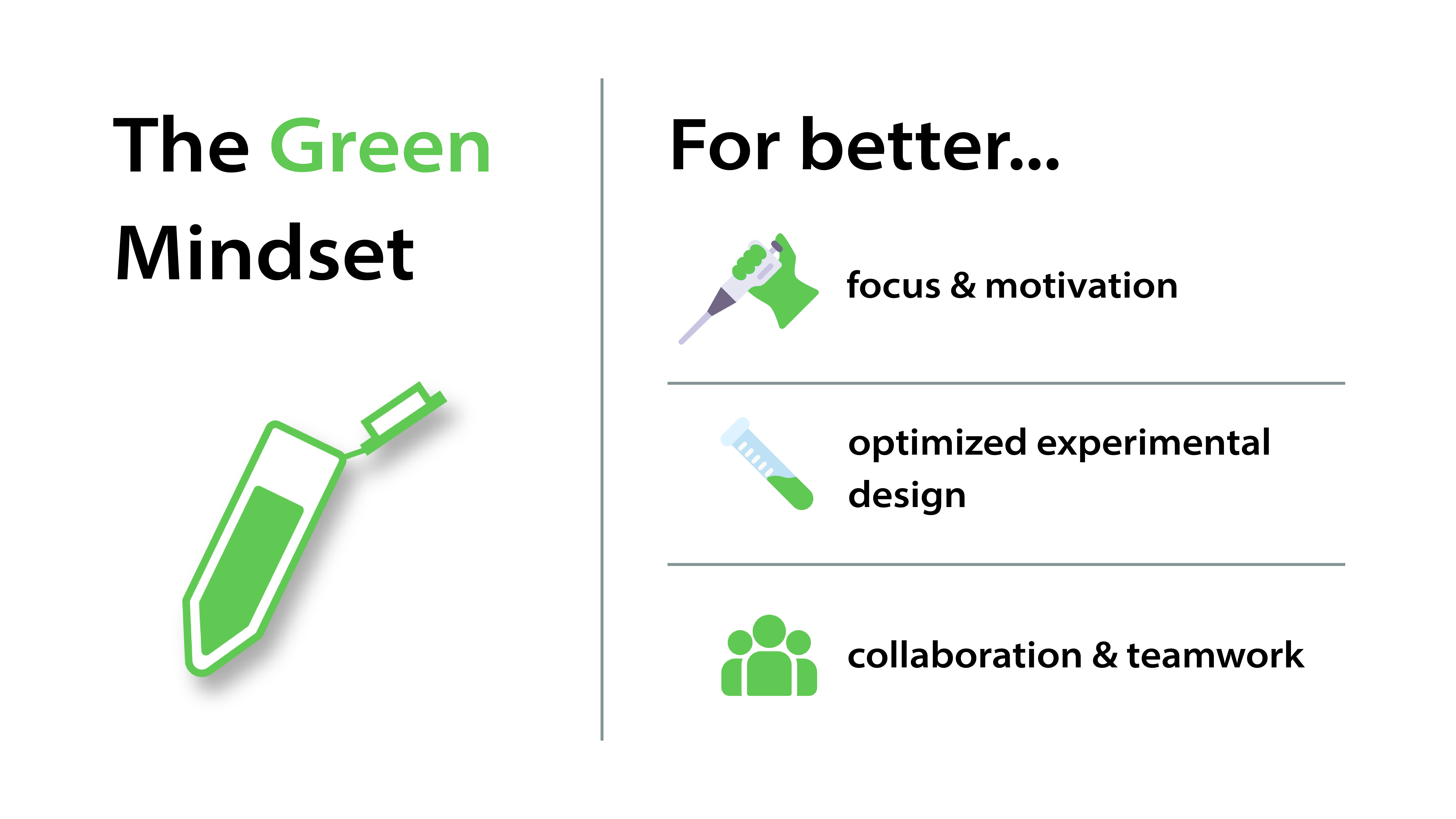
MOTIVATION AND FUN!
Hypothesis: Working sustainable can make you more motivated about your research! Imagine that with every step of your protocol you feel like you contributed something to a greener future. When you constantly have a success because you not only finished your experiment, but you did it better and with less waste than last time.
OPTIMIZED EXPERIMENTS
Working more sustainably means to be more conscious about the steps you take in your research. Since you want to reduce plastic, energy, and consumption you start to plan more precisely. That means taking that essential second look – in other words, creating a better experimental design. The result: more robust data because you took the extra step to look for mistakes in your plan or where to optimize.
ORGANIZATION, DILIGENCE, AND FOCUS
Sharpening your focus to the question of what to repurpose and what to reuse will automatically translate into a more productive and creative mind. Made a pipetting mistake because your mind slipped into daydreaming? It’s unfortunate, when you contaminate a 500€ antibody… An attentive mind – trained by looking at both the science and at how to reduce its environmental impact wherever it can – is the best antidot.
No doubt, every PI wants a researcher who is dedicated and passionate about their work. Is there a better idea than connecting your inner conviction to contribute to a greener future with your drive for science? It is also, a great addition to your CV.
And finally, we are talking about repurposing, sharing and reusing, and these require reaching out to others, convincing them, and cooperate with them. Yes, networking, selling, organizing: this is what you train for but this time with drive and fun. You develop skills that you will use for the rest of your life!
Patrick Penndorf, Green Laboratory Work
How money is indeed green
Scientists have the power for positive impact beyond just making discoveries through research. They also have the power to make innovative decisions about the way that research is conducted, choices that can set an example for others, and drive change towards more sustainable, environmentally friendly research practices.
When scientists incorporate research decisions into grant proposal applications demonstrating efficiency with resources such as equipment, chemicals, and materials, that is more than communicating an environmentally friendly approach, it is making a statement about maximizing the positive impact of research funding in support of the project. This latter point is particularly important since research sponsor budgets are limited, sometimes stretched to fund as many projects as possible, and expected to yield significant results despite their limited nature. Scientists can further choose to stand out in grant applications by describing in their biographies the culture of efficiency and sustainability that they will bring to the science community.
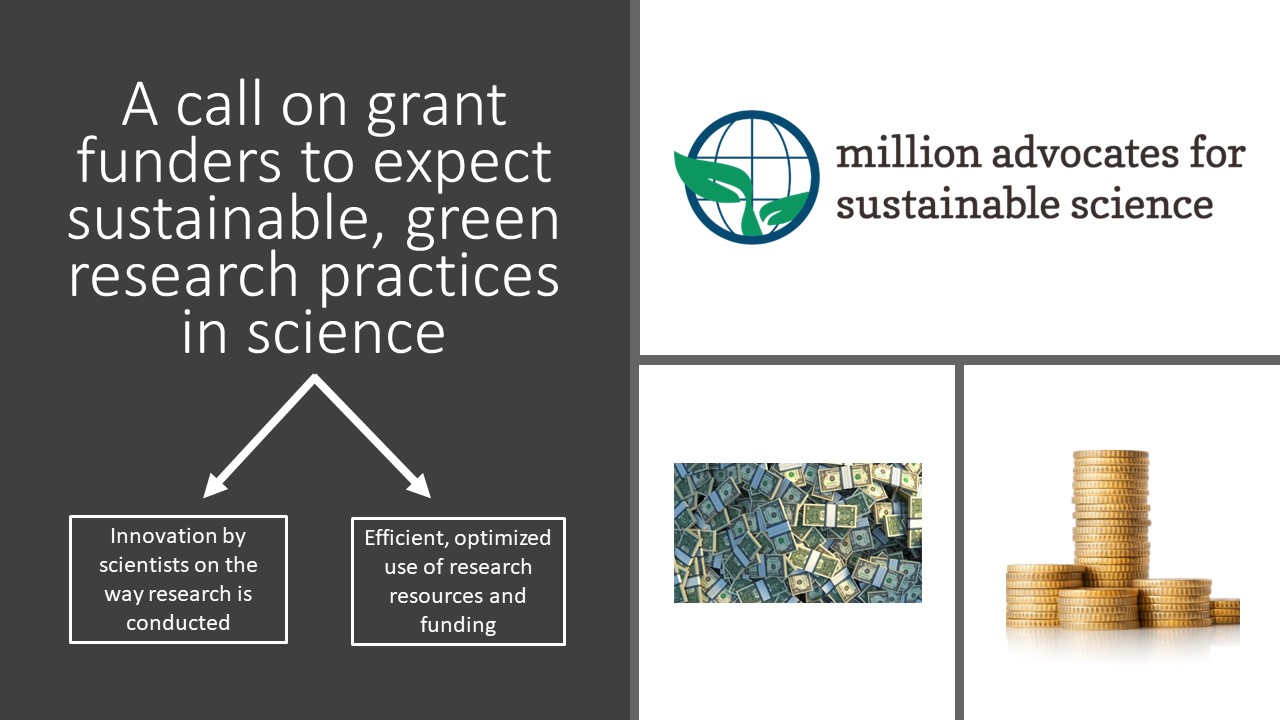
A cultural shift in science to enhance optimized use of resources (lab space, research equipment, utilities in support of research, and materials) is needed considering the climate change crisis and the large energy and resource footprint of scientific research. If research sponsors demanded action, this will lead to widespread and swift change. That is exactly what appears to be emerging in action plans from United Kingdom Research and Innovation and United States Health and Human Services, two large granting bodies. Additionally, the non-profits, My Green Lab and the International Institute for Sustainable Laboratories, have launched the Million Advocates for Sustainable Science letter signing campaign challenging “science funders from around the world to encourage sustainability in research”. Scientists and others can help support this “global movement for sustainable science” by signing the letter and encouraging colleagues to do the same.
Kathryn A. Ramirez-Aguilar, International Institute for Sustainable Laboratories (I2SL)
The benefits of networking
Sustainability is a global issue, but to address it we each need to take individual actions. The collective impact of our individual initiatives is what enables us to achieve our long-term goals. Individual impacts, though, is limited and can easily leave us less motivated. This is exactly why despite our busy schedules, we need to take the time to meet, share, and engage each other, particularly in the burgeoning area of sustainable science.
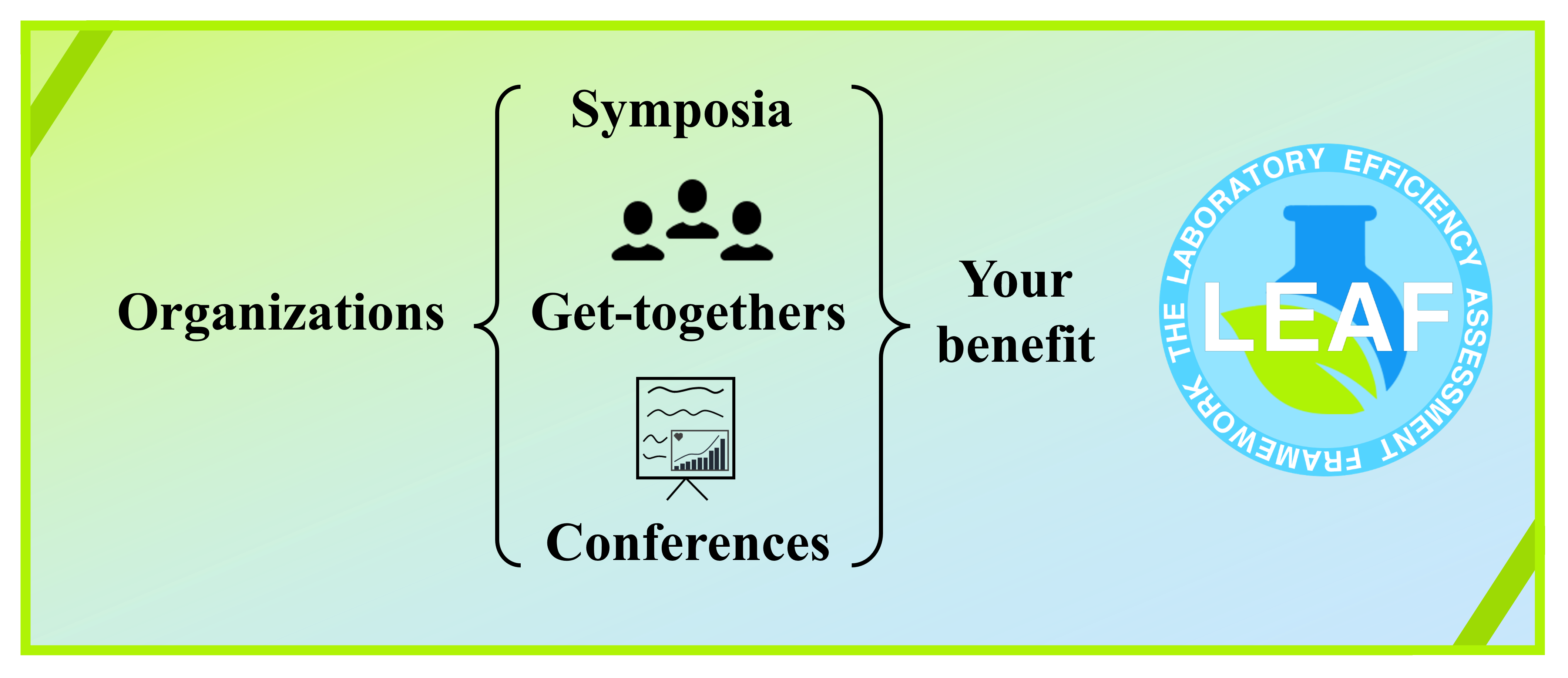
Over the past 2 years, there has been an encouraging rise in the number of European sustainable science events. The UK’s LEAN (sustainable science network) hosted a meeting to hear what efforts were taking place across Europe. Initiated by Novo Nordisk Foundation Center for Protein Research (CPR) at the University of Copenhagen (UCPH), the Sustainable Research Symposium was a wide reaching event in which the 2nd event was recently hosted by Green Labs Netherlands. This event will be hosted next year by the growing Sustainable European Laboratories Network (SELs). FENS recently featured SELs as well as a variety of speakers focused on sustainable science, like the LEAF programme. LEAF is the world’s largest sustainable lab certification, and is in use in over 80 institutions from 14 countries. More recently, FEBS supported the creation of the Green Laboratory Work 2022 conference, which brought together sustainable science experts from around the world. This event, like the others, allowed for initiatives to be shared around Europe and beyond, allowing us to both learn more how to tackle shared challenges as well as get motivated by common experiences. As sustainable science efforts grow around Europe and the world, such events will need to become standardized, ensuring communication channels remain open and accessible, benefitting all those who take part. All of these events listed had remote options, meaning travel was minimized.
Martin Farley, LEAF
The secret weapon of starting a successful Green Lab
So awesome to hear you are motivated to make your lab more sustainable!
How do I get started?
The biggest mistake is starting from scratch. Don’t reinvent the wheel. Instead, connect and learn from others who are already engaged in the Green Labs journey to jump start your Green Labs project. We’ve been there before, so we can give you lots of cool ideas, encouragement, and tips and tricks to help you get started smoothly and bring the most impact.
Where do I connect with others?
Luckily, Green Your Lab (GreenYourLab.org) has built a platform to connect you to a network of awesome scientists working on sustainable lab practices. And it’s free to join!
Some resources offered by Green Your Lab:
- Seminars and Networking: We host seminars and networking events where you can meet like-minded people and hear first-hand how they are making Green Labs happen at their institute.
- Community-sourced Green Lab Best Practices Database: Tap into the cumulative knowledge of our members to get some new ideas and inspiration. It’s also a place for you to share your best tips with the community.
- Q&A Forum: Reach out for help from the supportive members of our community with your specific questions. We believe sharing is caring. No question is too silly; everyone is super happy to help each other out.
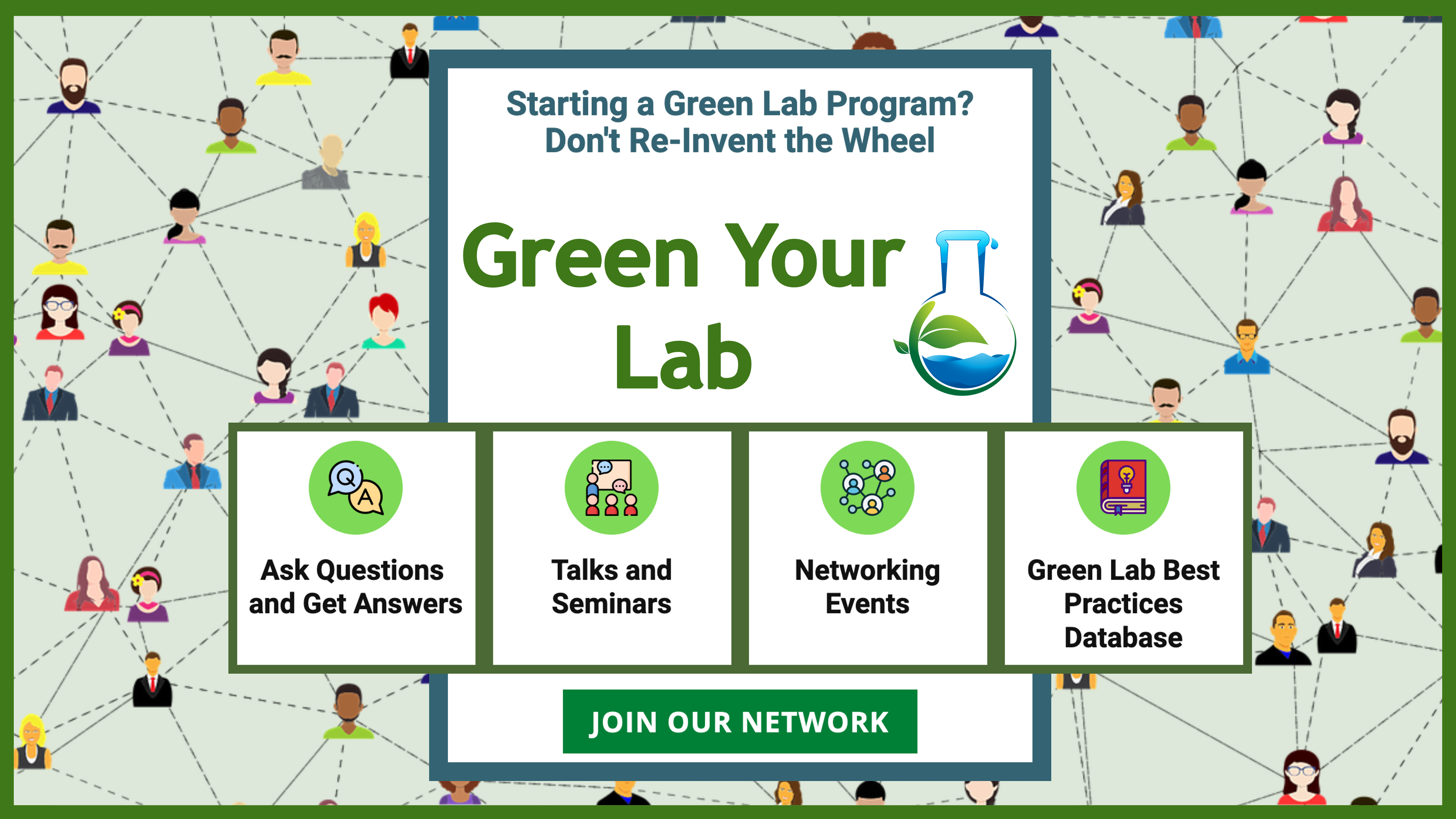
Every successful social change has been backed by a community, and that’s no coincidence. Join the Green Your Lab network and help move the Sustainable Labs movement forward!
Still not sure? We regularly post up Green Lab tips and tricks on our Twitter account (@GreenYourLab) that we’re sure you’ll love.
Fanny Yuen, Green Your Lab
Photo by Avinash Kumar on Unsplash

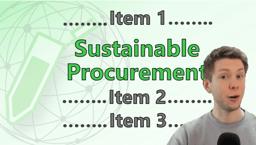
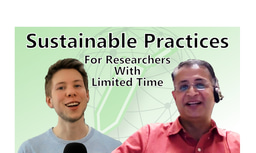
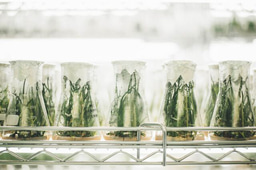
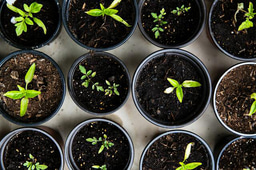
Join the FEBS Network today
Joining the FEBS Network’s molecular life sciences community enables you to access special content on the site, present your profile, 'follow' contributors, 'comment' on and 'like' content, post your own content, and set up a tailored email digest for updates.